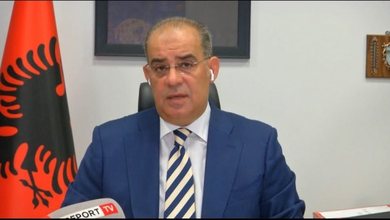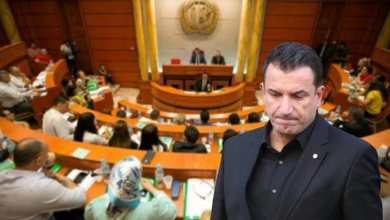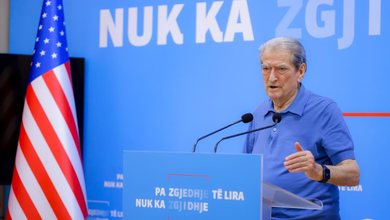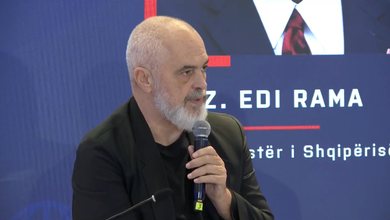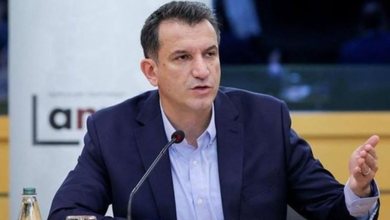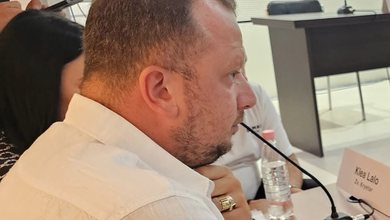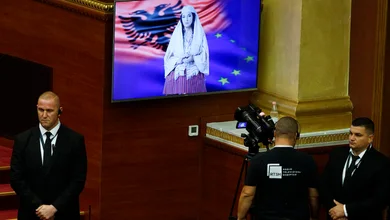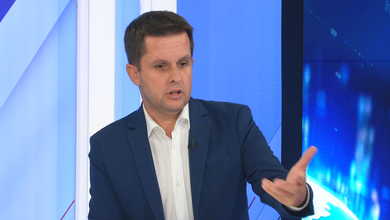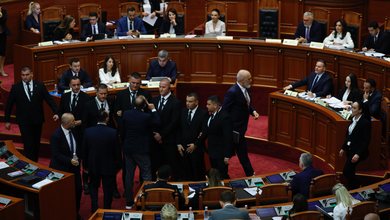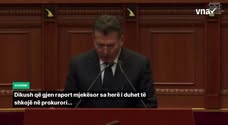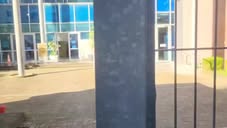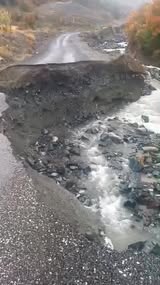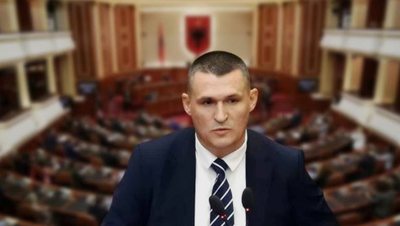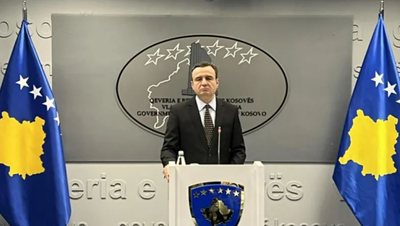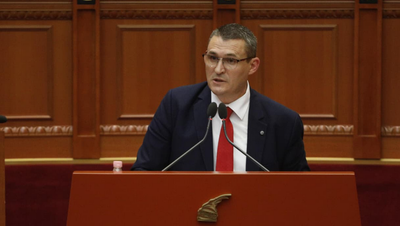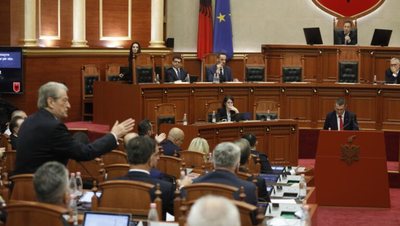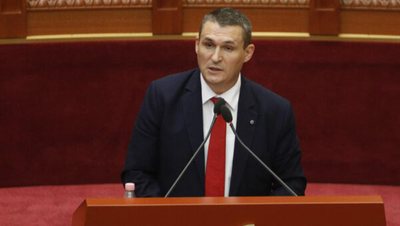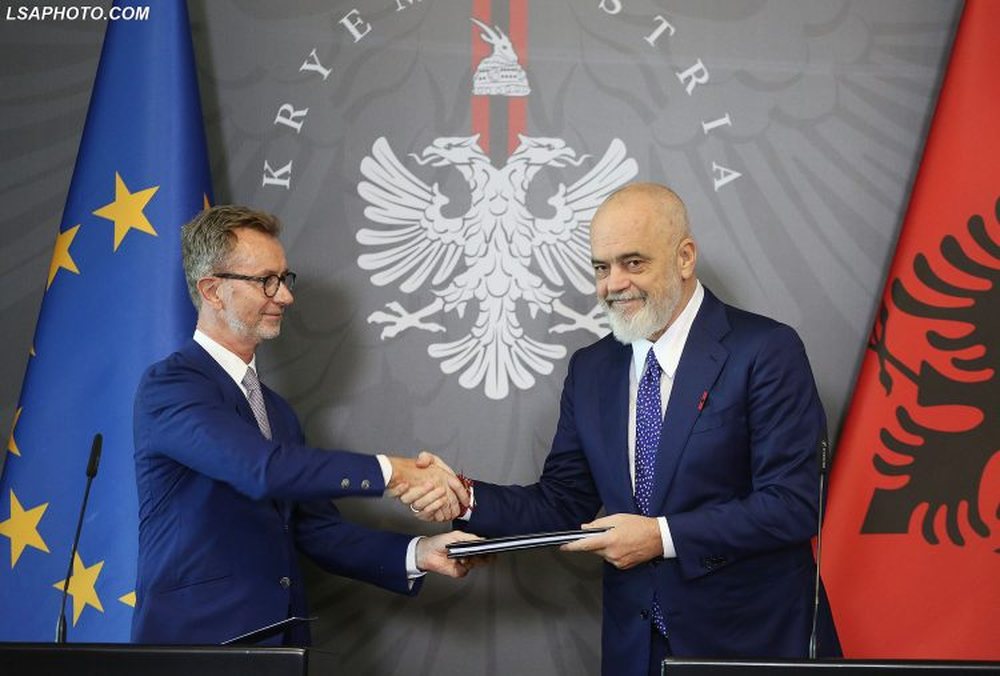
The European Union Delegation to Albania says it is closely following developments in the justice system, including attempts at inappropriate political interference. In a response to BIRN on Monday regarding Prime Minister Edi Rama’s recent attack on Tirana First Instance Administrative Court judge Marko Boshko and a decision he made, the EU Delegation notes that support for an independent, accountable and effective justice system remains at the heart of the delegation’s mission and a key condition for progress in EU accession negotiations.
"The EU closely follows developments in this area, including attempts at inappropriate political interference that undermine the independence of the judiciary and that may also erode public trust in the justice system. In this context, the Rule of Law Report and the Annual Report on Albania provide assessments of the situation in the country," the EU delegation's response is quoted as saying.
The 2025 EU Rule of Law Report for Albania finds, among other things, that while the stability of the judiciary has improved, attempts at undue influence on the judicial system by public officials or politicians have worsened.
“…Attempts by public officials or politicians to exert undue interference and pressure on the judicial system raise serious concerns,” the report cites, citing the reaction following the arrest in February of Tirana Mayor Erion Veliaj. The report says that the arrest of an elected official in February sparked unprecedented public reactions from the executive and legislative branches, including efforts to exert pressure on SPAK and judicial institutions.
Prime Minister Edi Rama has been launching a series of attacks on magistrates for two and a half months. The Prime Minister's statements have been condemned by the Union of Judges and the National Association of Judges - two volunteer groups of the judiciary. Meanwhile, the two institutions governing the justice system, the High Judicial Council and the High Prosecutorial Council, have remained silent or have made reactions without a specific address.
Rama has personally targeted the judges of the Administrative Court, Ligoraq Toshi, Klarent Demiri, Hazbi Balliu and Marko Boshku, opposing their decisions through offensive labels.
Following the Prime Minister's latest attack on Judge Marko Boshku, the National Association of Judges described the government's number one action as bordering on a criminal offense and as an attempt to usurp judicial power. The association demanded a response from the Supreme Court of Justice and international partners, for a clear position in defense of the judicial system.
Earlier, on July 7, the prime minister attacked Shkodra prosecutor Elsa Gjeli for not opening a case referred by the police and Shkodra Municipality for illegal construction in Theth. Rama was referring to a series of holiday cabins built near the village church, which he said were the work of an individual who is beyond the reach of the law.
The Prime Minister stated at the time that the Inspectorate and the State Police had ascertained brutal interventions, but the prosecution had not immediately declared the person responsible wanted.
Rama's position was immediately opposed by the Shkodra Prosecution Office, which, in a rare reaction for these cases, came to the prosecutor's defense and pointed out that it was the institutions subordinate to the government, the Police and the Shkodra Municipality, that had referred the case as a misdemeanor and not as a criminal offense.
Gjeli filed a request with the KLP against the prime minister's statements, which he described as insulting and discrediting the figure of the magistrate, while the government responded through a complaint submitted to the High Inspector of Justice, ILD, by former Minister of Justice Ulsi Manja.
In a decision dated September 17, the ILD found that there were no legal and factual elements from which a reasonable doubt could be created for the initiation of disciplinary proceedings against prosecutor Elsa Gjeli. For this reason, it has decided to archive this case. During a meeting held two days after this decision, the High Inspector of Justice, Artur Metani, highlighted, among other things, that the judicial system has long been under pressure to exercise its duty or not in a certain form, a situation that he described as unconstitutional. /BIRN/


